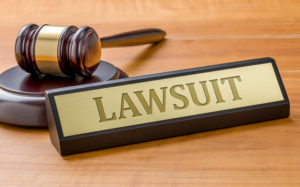 After enduring a car accident, you need money to pay for your medical care, replace your lost wages, and compensate you for the harm you have suffered. Often, that money will come to you in the form of a settlement payment from the party at fault for your crash and that party’s liability insurance company.
After enduring a car accident, you need money to pay for your medical care, replace your lost wages, and compensate you for the harm you have suffered. Often, that money will come to you in the form of a settlement payment from the party at fault for your crash and that party’s liability insurance company.
But how much money should you agree to take as a settlement of your car accident claim? The short answer is, it all depends on the particular circumstances of your case.
An experienced car accident attorney will try to get you the best possible settlement to pay for your injuries and losses and advise you about how much money you should seek.
Let’s take a closer look at settlements and the factors that go into deciding how much you should seek.
Settlement Basics
A settlement is an agreement between two or more parties to resolve a legal claim. In car accident cases, a settlement resolves an injured crash victim’s claim for financial damages against the at-fault party or parties.
In the typical car accident settlement, the crash victim agrees in writing to accept payment or a series of payments from the at-fault party (usually through that party’s liability insurance policy). In exchange, the crash victim agrees to release the at-fault party and its insurer from further liability for the victim’s accident-related damages.
Virtually all settlements are final, binding contracts. They either terminate the possibility of the crash victim filing a lawsuit or mark the end of a lawsuit the victim has filed. Once signed, sealed, and delivered, a settlement cannot generally be changed or revoked. So the crash victim must know the settlement represents the best outcome for the victim’s specific circumstances.
Lawyers for crash victims negotiate settlements with the at-fault party’s representatives (usually lawyers and/or insurance adjusters). Lawyers also advise crash victims about the amount of money they should receive, and whether to accept or reject any settlement offers the at-fault party and that party’s insurer may make.
What determines car accident settlement amounts?
The amount you can and should settle for depends on a variety of factors that vary from accident-to-accident and victim-to-victim. Your settlement will be unique to your crash, your injuries, your losses, and the party who owes you money for them.
Here are the major factors affecting your settlement.
Your Total Damages
As the victim of a car accident, you have the legal right to receive financial compensation from the party who caused you harm. The starting point for any settlement analysis is to determine how much financial compensation you deserve under the law.
Every car accident differs, and so do the types of damages you may have the right to receive.
But in general, as a crash victim, you have the right to demand payment for:
- Medical expenses, including the cost of emergency room visits, surgeries, ongoing therapy, medication prescriptions, and expenses for equipment like crutches, wheelchairs, etc.
- Property damage expenses, commonly involving the cost of repairing or replacing your vehicle and other personal property in the accident.
- Other expenses you have because of the crash that you would not have had otherwise, such as the cost of hiring someone to help out around the house while you recover, or of modifying your living quarters to accommodate a disability.
- Lost income from the time you must take off work while healing from injuries and the loss of future income-earning opportunities (such as when you suffer a disabling injury that prevents you from working in your chosen profession).
- Pain and suffering, both physical and emotional, caused by your car accident and the injuries you sustained in it.
- Loss of companionship and consortium, which reflects the harm done to your closest personal or intimate relationships by the injuries you suffered.
- Loss of life enjoyment, which measures the overall negative impact on your life inflicted by the accident and your injuries, including the inconvenience of living with a permanent injury, or the ways an injury interferes with your ability to participate in favorite activities or pastimes.
In some car accident cases, you may receive statutory damages if someone broke a specific law in connection with your accident, or exemplary damages if the at-fault party acted with “oppression, fraud, or malice.”
An experienced lawyer works closely with you, your loved ones, and (when appropriate) medical, financial, and other advisors to calculate the amount of each category of damages you should receive under each of the categories above. That process often includes adding up all of your bills and receipts from medical and other expenses, trying to predict your future medical complications and needs, and interviewing you and others about the difficulties and challenges you have faced since your car accident.
Ultimately, that process boils down to a single number. That number reflects your total damages-the maximum amount of money the law says you should get for your injuries and losses. It will serve as the baseline for weighing any settlement offers you receive.
The Strengths and Weaknesses of Your Case
In an ideal world, you would simply receive your total damages, no-questions-asked, from the at-fault party and that party’s insurer.
But that’s rarely how things work in the real world. Instead, the at-fault party’s defense lawyer and insurance adjuster will look for every possible reason to chip away at your total damages and to pay you less. They will raise these reasons in negotiations with your lawyer, trying to use them as leverage to reduce the settlement you will agree to accept.
To prepare for that process, your lawyer must also make a clear-eyed assessment of the strengths and weaknesses of your car accident case. That assessment seeks to measure the quality and quantity of the evidence and legal rules you have at your disposal to prove the at-fault party’s liability to you for your total damages.
As a general rule, the more evidence you have of what happened, who’s to blame, and the total damages you suffered, and the clearer the legal principles involved, the stronger your case will be. Some cases tick all of these boxes, but many don’t.
When evidence does not paint a crystal-clear picture of liability and total damages, or when the facts create complications about who to blame for what happened, it can affect the value of your car accident claim. A lawyer who takes a realistic view of those factors may advise his or her client to settle for less than their total damages, to account for the weaknesses or uncertainties in their case.
The Funds Available to Pay You
Once you know your total damages and how much the strengths or weaknesses of your case should factor into your settlement amount, there’s still one more critical factor to consider. How much money do the at-fault party and that party’s insurer have to pay you?
In the vast majority of car accident cases, the at-fault party’s liability insurance pays most (if not all) of your settlement. The at-fault party may pay a portion of the settlement out-of-pocket, but that rarely accounts for a significant portion of the money you ultimately receive.
For that reason, the limits of the at-fault party’s liability insurance policy matter, because depending on the size of your total damages, they may set an upper boundary on the amount of any settlement you might hope to receive.
For example, if your lawyer thinks it’s realistic to settle a car accident for $850,000 after calculating your damages and considering the strengths and weaknesses of your case, the amount you may settle for could depend on whether the at-fault party carries $1,000,000 in insurance, or just $100,000. In the former case, you might get your full $850,000. In the latter case, you probably can’t hope for more than $100,000.
Because insurance limits often cap the value of a potential settlement, experienced car accident lawyers delve deep into the evidence to identify as many parties as possible that may owe damages to their injured client. The more at-fault parties they can find, the lower the likelihood that their client will have to settle for far less than they deserve.
The Process of Getting to a Settlement
We’ve covered what a settlement is and the factors that go into determining its amount. But how does a settlement come together?
It can vary, but the process often involves:
- You call a personal injury lawyer for a free consultation to determine whether you have a car accident claim worth pursuing.
- You hire a lawyer who gives you confidence in their ability to get you a good settlement or, if necessary, to win for you in court.
- A lawyer goes over the details of your accident and total damages.
- Your lawyer gathers evidence to support your car accident claim, which may involve interviewing witnesses, reviewing police accident reports and your medical records, and obtaining photos and videos of the scene.
- Your lawyer sends a demand letter to the at-fault party and/or that party’s representatives outlining the reasons your lawyer thinks that party owes you damages and the amount you demand.
- You receive a response from the at-fault party (often through a lawyer or insurance company) stating their view of your claim, including whether they acknowledge liability or dispute damages. Sometimes, this response will offer a settlement.
- You decide your next steps, which may include gathering more evidence to show to the at-fault party, filing a lawsuit, or directly entering into negotiations.
- Your lawyer negotiates a potential settlement, which may involve multiple emails, calls, or in-person meetings between your lawyer and the at-fault party’s representatives, discussing the strengths and weaknesses of your case, the resources available to pay you, and the amounts you demand and the other side is willing to pay.
- You weigh settlement officers received from the at-fault party. A lawyer advises you about whether to accept or reject offers, but the final decision is always yours.
- You settle, which almost always focuses on the amount of money you will receive, and how it will be paid. The lawyers then exchange drafts of a written settlement agreement spelling out the agreed terms.
- Your lawyer executes the agreement and collects your settlement for you, which often happens electronically.
Not all car accident cases settle. If both sides can’t agree on an acceptable settlement, your lawyer may advise taking your case to court for a trial in front of a judge and jury. There, your lawyers will present the evidence and arguments in your favor and the judge and jury will decide your claim.
For that reason, make sure the car accident lawyer you choose has experience negotiating top-dollar settlements and winning cases in court. Look for an attorney who has a track record of significant case results in situations like yours, and a solid reputation for winning complex cases for clients like you in your area.
Want a good car accident settlement? Contact an experienced lawyer right away.
If you’ve read this far, then you probably have a sense that achieving a good settlement of your car accident case takes the skill, experience, and hard work of a seasoned attorney. It’s not something you can realistically hope to do on your own.
The sooner you contact a car accident injury lawyer, the better your chances of securing the most favorable settlement possible in your case. So don’t wait. Get your free consultation today.







